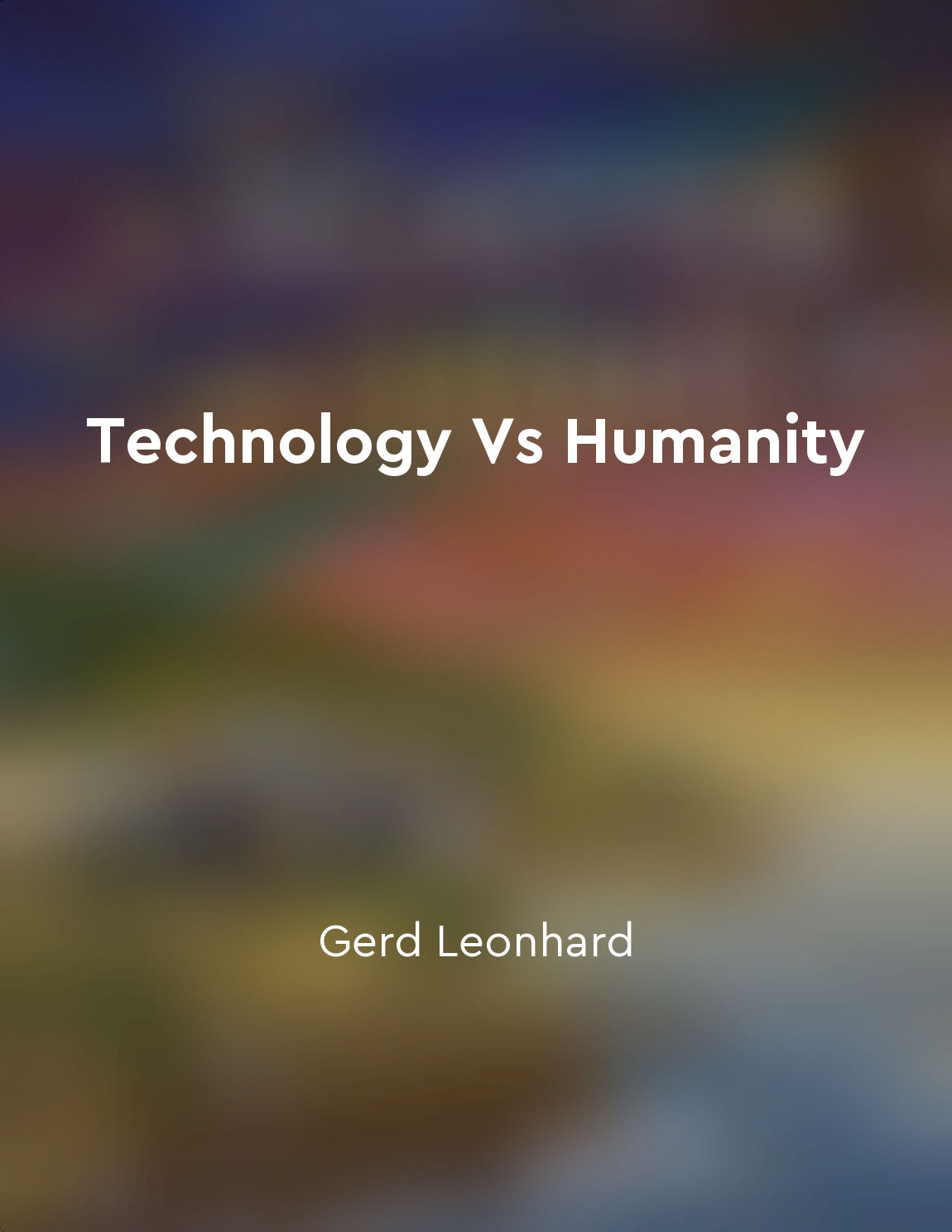Automation can reduce creativity from "summary" of The Glass Cage by Nicholas Carr
When we delegate tasks to machines, we are essentially handing over control and decision-making to a piece of software or hardware. This can lead to a decrease in our own problem-solving skills and creativity. Automation can make us reliant on technology to the point where we lose the ability to think for ourselves and come up with innovative solutions. One of the dangers of automation is that it can lull us into a false sense of security. When we trust machines to do everything for us, we stop questioning their decisions and assumptions. This can hinder our critical thinking skills and prevent us from exploring alternative approaches. Creativity thrives on uncertainty and experimentation, but automation tends to eliminate these elements from the equation. Furthermore, automation can limit our exposure to new ideas and perspectives. When algorithms are responsible for curating our online content, we may end up in a filter bubble where we only see information that reinforces our existing beliefs. This can stifle creativity by preventing us from being challenged and exposed to diverse viewpoints. In a sense, automation can lead to a homogenization of thought and behavior. When we rely on pre-programmed routines and algorithms to make decisions, we may lose the ability to think outside the box and consider unconventional solutions. Creativity often requires breaking free from established patterns and exploring the unknown, but automation can keep us trapped within the confines of what is predictable and familiar.- While automation can certainly increase efficiency and productivity, we must be mindful of its potential impact on our creativity. By striking a balance between automation and human intervention, we can harness the benefits of technology while preserving our capacity for innovation and originality. As we move forward in an increasingly automated world, it is essential that we remain vigilant and proactive in nurturing our creative capabilities.
Similar Posts
Creativity enhanced by algorithms
Algorithms have long been associated with logic and efficiency, but their role in creativity is often overlooked. However, algo...
Trade unions play a crucial role in protecting workers' rights
Trade unions play a crucial role in protecting workers' rights by acting as a collective voice for employees in their interacti...
Collaborate with influencers to expand your reach
One of the most effective ways to increase your online presence and reach a larger audience is by partnering with influencers. ...
The integration of AI into society requires careful planning
As we venture further into the age of artificial intelligence, it becomes increasingly evident that the integration of AI into ...

Data ownership is a crucial issue
Data ownership is a crucial issue because it lies at the heart of the current digital transformation - it is the very essence o...
Revolutions in America and France challenged monarchies
In the late 18th century, significant upheaval was witnessed in both America and France. These revolutions were not just about ...
Follow your own path instead of trying to imitate others
Imitation is a dangerous game. If you're just copying everyone else, you'll never be more than a pale imitation of the original...
Experts become less proficient when assisted by technology
Nicholas Carr delves into a fascinating concept that challenges our assumptions about the role of technology in enhancing human...
Machine intelligence can enhance human capabilities
Machine intelligence has the potential to amplify human abilities in ways that were previously unimaginable. By leveraging the ...
Technological progress is accelerating exponentially
Technological progress is accelerating at an unprecedented rate. The rate of change is not simply linear; it is exponential. Th...

